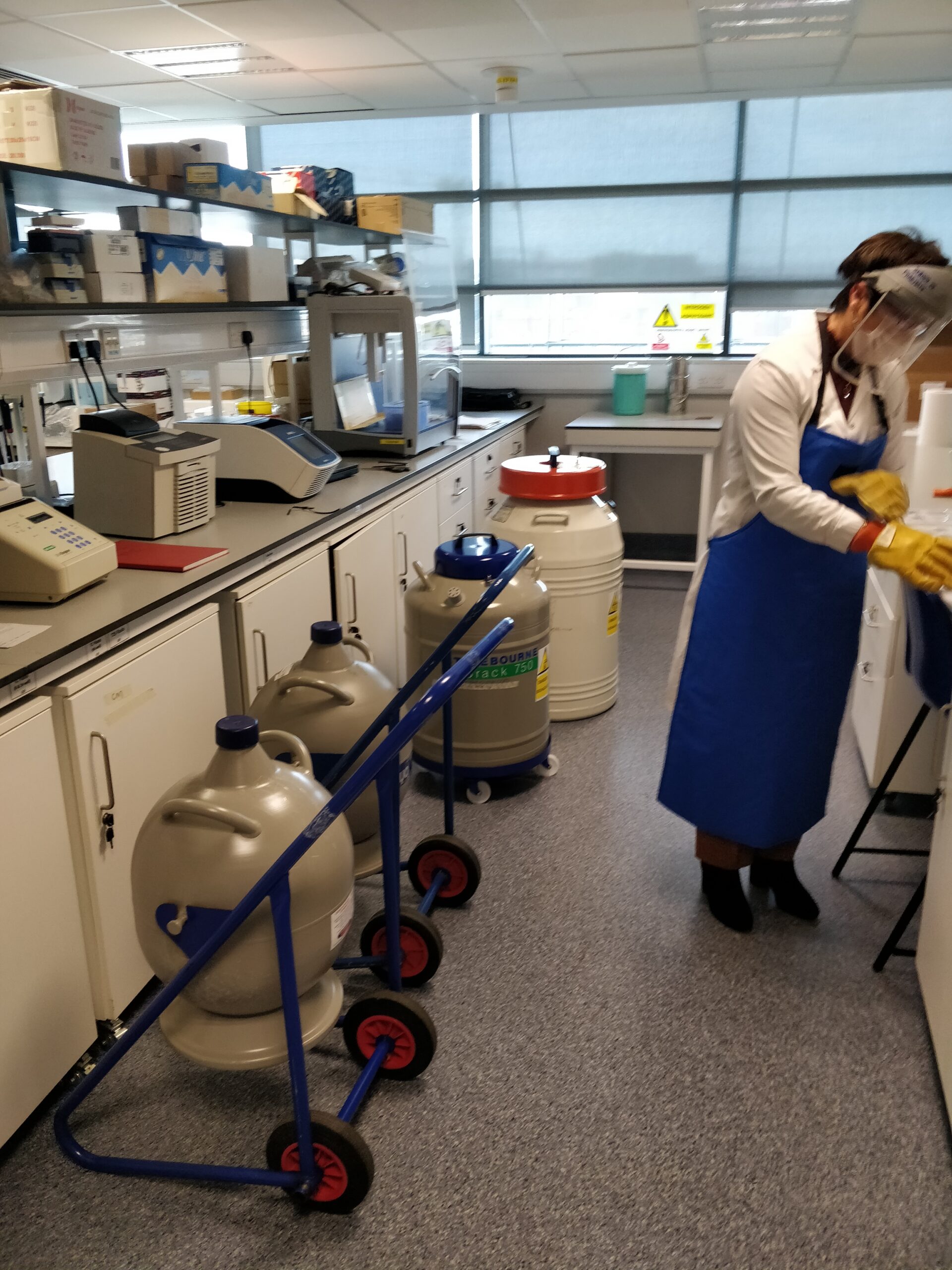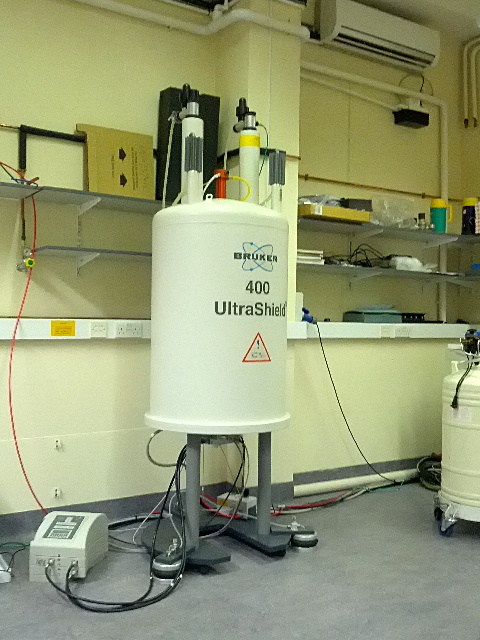The year was 1665 and the Great Plague had just hit London. Sent home from Trinity College, Cambridge, to continue his studies remotely, a young Isaac Newton saw – or so the story goes – an apple fall from a tree in his orchard.
So it was that while a pandemic swept across London, claiming the lives of a quarter of its population, that the college student cracked one of the most important scientific discoveries in history – without the aid of any university professor or laboratory magnet.
But that was 1665.
This is 2020, where technology is responsible for the majority of our fundamental and groundbreaking scientific developments. Whether it is earth-defying leaps forward in space travel, life-saving discoveries in cancer cures or (presently) breakthroughs in the search for a coronavirus vaccine, today’s research for tomorrow’s future requires more than just musings about the gravitational workings of apple trees through bedroom windows – no offence, Newton.
Instead, given the rapid change of pace in technology and science, cutting-edge discoveries demand high-end research projects that implement high-end equipment and supplies – most of which are found in our colleges’ laboratories.
Most of the equipment is turned off. All research is more or less finished now
Fast-forward almost 500 years and what happens when a global pandemic strikes again, forcing whole continents and their colleges with their scientific resources to shut down? What do access restrictions to valuable science equipment and substances mean for colleges, academics and the students who use them? And indeed, for scientific research itself?
On March 12th, Trinity, along with the rest of the country’s schools and universities, closed its doors to students and most of its staff, with teaching going digital and exams moving to online, take-home and assignment format.
For the foreseeable future, this means empty lecture theatres, empty classrooms and – crucially – empty laboratories.
While remote learning and teaching can be inconvenient at best and challenging at worst for many students and staff, technologies such as Zoom only go so far in delivering a virtual workspace to one’s sitting room, particularly for those who work and study in the sciences.
“The closure is having a great impact on practical classes’ delivery and research across the school, as these activities had to suddenly stop”, says Dr Carolina Garciarena, a chief technical and safety officer at Trinity’s School of Pharmacy and Pharmaceutical Sciences.
Garciarena is one of only a handful of “essential persons” allowed on campus to conduct vital work during the College’s closure. Her jobs include ensuring that the school’s technical team continues to provide essential support to its laboratories by keeping cell banks replenished with liquid nitrogen, surveilling freezers and fridges, maintaining other research equipment and inspecting the school’s laboratories across Panoz Institute and Trinity Biomedical Sciences Institute (TBSI).

But what happens when science activities stop? Can science itself – tied in our minds to the whirring of lab fridges, to the cloaks and goggles of the academics and students huddled over microscopes – be stopped?
If this sounds like an eerie dystopian fiction, it is very much one of the many harsh realities that the coronavirus has brought to present life. “Most of the equipment is turned off”, Brian Talbot, another chief technical officer in Trinity’s school of pharmacy and pharmaceutical sciences, tells me. “All research is more or less finished now. We are lucky in the sense that with the most expensive equipment, LCMS [Liquid Chromatography Mass Spectrometer] – we’re talking about half a million’s worth of equipment – we were able to turn it off over the period since we left the labs.”
While the life of equipment may be temporarily ended until the future situation is more clear, the same cannot be said for the “very expensive” cell cultures in the biological departments in College. The most important thing the team is doing at the moment, Talbot says, is keeping these substances alive by filling and regularly topping up the liquid nitrogen vessels once a week and retaining them at a temperature of minus 190 degrees.
Catastrophe would strike if the liquid nitrogen was to dry up in the cells, because they would die off in a period of hours, despite some of the cells having been cultured over a long period of time. But “these protocols should keep everything viable”, writes Dr Helen Sheridan, an associate professor of natural product chemistry and director of research in the school of pharmacy and pharmaceutical sciences, in an email to The University Times. “And although dormant, researchers will be able to resurrect these resources reasonably quickly when things get back to normal.”
Indeed, getting back to normal as quickly as possible will certainly rank high on the wish-lists of most academics and students in the scientific community. For Dr John O’Brien, the senior experimental officer in Trinity’s School of Chemistry, the sooner, the better.
“It’s usually bananas in the lab, people coming in and out asking questions or needing help with something. But now, it’s very quiet – it’s too quiet.”
With 30 years’ experience under his belt in the school, O’Brien is also listed as an “essential person” following the countrywide lockdown implemented last month, and travels into College twice a week to maintain the extremely valuable Nuclear Magnetic Resonance (NMR) equipment used in quality control and research for which he is responsible.
It’s usually bananas in the lab, people coming in and out asking questions or needing help with something. But now, it’s very quiet – it’s too quiet
While he admits that closing down College certainly poses ongoing technical problems with the necessity to maintain critical equipment in trying times, O’Brien appears more concerned about the serious threats that coronavirus poses to the future – and indeed the life – of scientific research in Trinity and Ireland, when things are “back to normal”.
He says: “Once we come out of the pandemic, we face the problem of modernising the equipment. In the economic environment, that could be very difficult. With the consequences of corona, it would be a good idea to put more investment into research to show the value of high-end research.”
Speaking of the future, what of the research students who are being prevented from developing the science of tomorrow? Dr Maria J Santos-Martinez, an assistant professor in nanopharmaceutical drug discovery, and biological safety officer who also sits on the university safety committee in the School of Pharmacy, is visibly worried about the situation for students.
“It’s not just the fact that you have to stop your attendance [in the laboratories], but it’s the fact that you don’t know when the labs will be open again. And not just from the point of view of the research itself, but also from the point of view of the student and how they organise themselves.”

Sheridan – who’s currently supervising three PhD candidates – also sympathises with students. “My main job now”, she says, “is to motivate them to keep writing up their work [from home], which may balance out the time delay at the end”.
So ultimately, while Newton may have enjoyed a “year of wonders” away from the laboratory in 1665 before returning back to Cambridge’s Trinity College, the effect of putting research equipment and substances into hibernation – and the precious time that researchers are now losing – could have serious implications for our own Trinity.
What the state of third-level scientific research will look like in the aftermath of the pandemic, in a country where research funding is at an all-time low, remains to be seen. O’Brien says: “It comes back to society – we need to invest in science and this has been emphasised by covid … research is very valuable in times of crisis in providing new horizons.”







